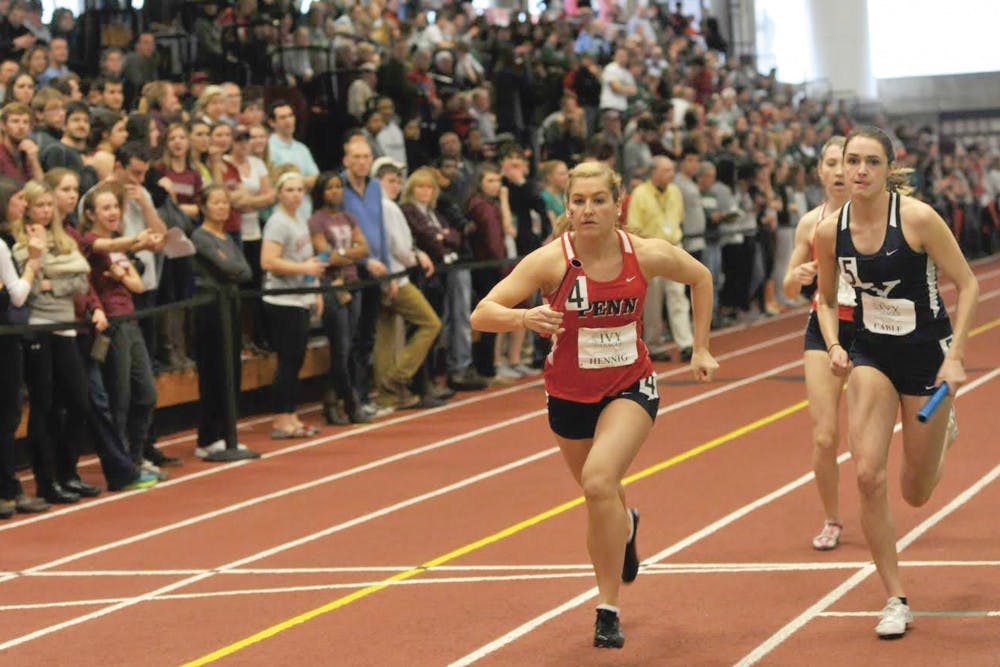A lawsuit filed by two former members of Penn track and field arguing for a minimum wage for college athletes met a setback last week in federal court.
Taylor Hennig and Gillian Berger, both 2016 College graduates, sued Penn and the NCAA in October 2014 arguing that Division I student-athletes should be classified as employees and therefore entitled to a minimum wage during their seasons.
But on Dec. 5, the U.S. Court of Appeals for the Seventh Circuit upheld an earlier district court ruling that student-athletes cannot be treated as employees.
For years, the “pay-for-play” debate has rocked the world of collegiate athletics. As interest in college sports has exploded in the forms of increasing television exposure, video game creation and ticket sales, the nation has seen a rapidly growing amount of cries for student-athletes to receive some type of compensation for their efforts.
Hennig and Berger based their argument on the fact that unpaid student interns are legally treated as employees, since the companies for which they work receive the primary benefits of these students’ services. Claiming that student-athletes' status is similar to that of these interns, the pair argued in favor of providing student-athletes around the nation with similar legal benefits.
But the Seventh Circuit, led by Judge David Hamilton, would not budge. Citing a “revered tradition of amateurism in college sports,” the Court ultimately ruled that student-athletes could not legally be considered employees, according to court documents.
“The Seventh Circuit found that interscholastic athletics does not constitute ‘work,’ in the sense contemplated by the Fair Labor Standards Act,” attorney Mike D. Wilson told The Penn Record. “The court also found that student athletes do not have any real expectation of earning an income, because student-athletic ‘play’ is not ‘work.’”
Despite the appellate court's rejection of Hennig and Berger’s argument, the Court did concede that a systematic change could be imminent in some sports that traditionally earn significant revenue.
"I am less confident, however, that our reasoning should extend to students who receive athletic scholarships to participate in so-called revenue sports like Division I men’s basketball and FBS football," Hamilton wrote. "In those sports, economic reality and the tradition of amateurism may not point in the same direction. Those sports involve billions of dollars of revenue for colleges and universities. Athletic scholarships are limited to the cost of attending school."
Efforts to revamp the NCAA’s amateur system are nothing new, with Hennig and Berger's trial merely providing the most recent example. Most notably, former Northwestern University quarterback Kain Colter and his team attempted to form the first-ever collegiate sports players’ union, before the National Labor Relations Board denied this request in 2015.
Despite the lack of an official salary for college athletes, strides have been made to improve financial conditions somewhat in recent years. In 2014, the NCAA voted to allow unlimited meals for student-athletes at certain Division I schools in conjunction with their athletics participation, and in 2015, the College Football Playoff instituted a stipend for players to aid their families’ travel plans.
Yet calls for greater reform have come from all around the country, with commentators from ESPN, Forbes, The New York Times and The Chicago Tribune all arguing for student-athlete pay in recent years.
Despite the failure in the appellate court, Hennig and Berger's battle may not be over yet. The pair reportedly plan to continue to fight on behalf of student-athletes by officially challenging the Seventh Circuit’s ruling.









